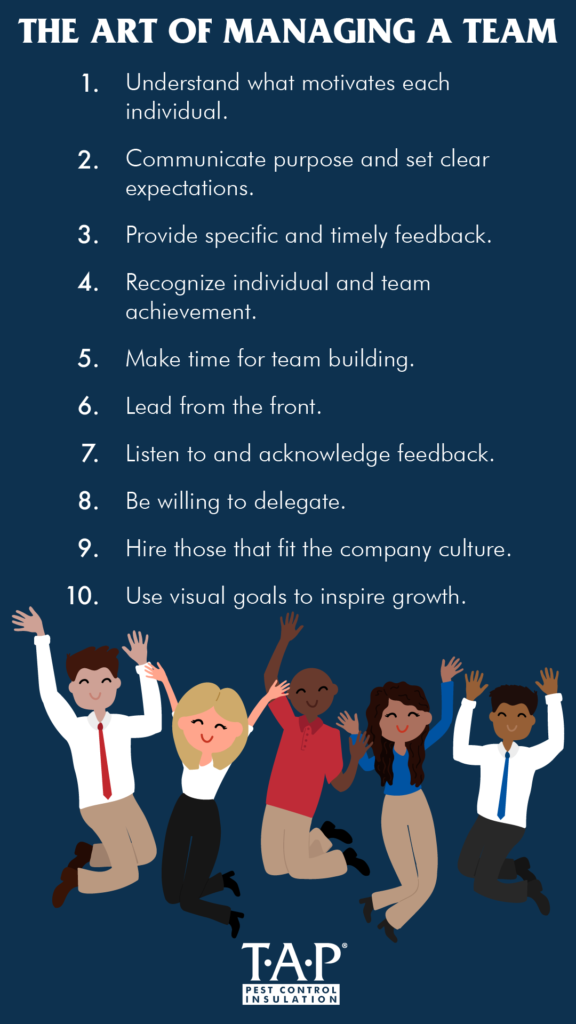
Within the pest control industry, promotions are inevitable and often come quick. The key is to be ready when tasked with managing others. Here are a few items to consider:
1. Understand what motivates each individual. Money is great but doesn’t always serve as a motivator. Employees often prefer flexible work schedules, comp time, the opportunity to take ownership of a project, or a simple pat on the back.
2. Communicate purpose and set clear expectations. Everyone likes to work towards something bigger than themselves. Keep your team on the right path by clearly articulating the purpose of a project, job responsibility, or task. Help them see how it affects the overall organization and the end user (customer). This will help set a foundation for team success.
3. Provide specific and timely feedback. This is important especially if you have millennials or Gen Zers on your team. They are used to constant feedback helping them understand where they stand and if they are on the right path. Without micro-managing, provide feedback at regular increments for success.
4. Recognize individual and team achievement. When a team is responsible for successfully completing a task, praise the team and the individual contributions. This will demonstrate to your team that they are noticed individually and that their effort was worth it in your eyes.
5. Make time for team building. Everyone likes to have a bit of fun on the job. Why not make it educational as well? Provide opportunity for team bonding both on the job site and after hours. Help your team get to know each other and you in a different light. The respect and appreciate you gain will pay huge dividends in the long run.
6. Lead from the front. Always be willing to demonstrate that no task is beneath you. Jump in on occasion and demonstrate your ability to contribute. If your team sees your willingness to participate occasionally, they won’t question your direction.
7. Listen to and acknowledge feedback. As a leader, listening is a critical skill to develop. Allowing your team ample opportunity to share will help you determine any pain points along the way and gives you insight into their thought processes. Remember, just because they shared, doesn’t mean you will take their insight or use their idea. However, it is always wise to acknowledge and respect their input.
8. Be willing to delegate. No one likes a leader that wants to do everything him or herself. Share the load and give others the opportunity to gain experience. The end result may even surprise you.
9. Hire those that fit the company culture. When hiring, it is always smart to make sure the candidate is a fit for your company culture. Allow them to interact or shadow your team during the interview process. Get your team’s feedback on their experience with the applicant and use it as insight into their “fit.”
10. Use visual goals to inspire growth. We are not talking about pasting a $100 bill to the wall (you never know what might work). Use a visual score board that shows everyone’s individual and team progress. As long as it is updated on a regular basis, a little bit of healthy competition should arise. This is also a fantastic way to silently acknowledge individual achievement.
Managing a team can be a complex and rewarding job. Taking the proactive steps to support your team positions them, and you, for greater success.

